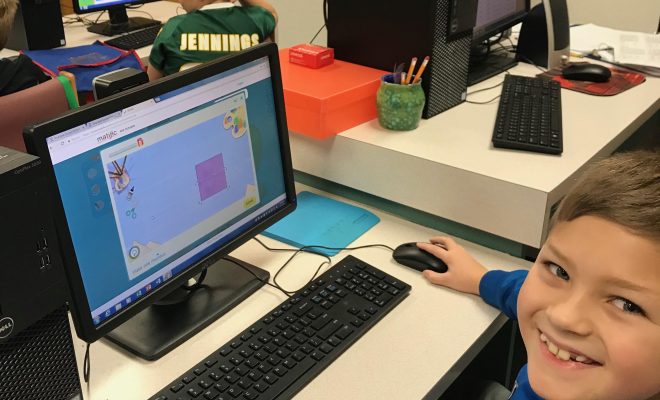Hidden Issues in Educational Funding: Understanding the Controversy of Ethnicity and Inequality in School Systems

Educational funding is necessary for the development of any school including the availability of resources for students and teachers. However, do some school receive more funding than others? If so, who and what determines which schools are adequately funded? This articles answers both questions and discusses the controversy of issues within educational funding that are steered due to ethnicity in school systems resulting in what appears to be inequality.
Minority groups tend to live in poverty in proportions that exceed their representation in society.
Communities of specific racial minorities tend to be areas with a lower tax base. In poorer communities, a lower tax base results in less funding for the schools in those areas.
Running schools costs money. Paying teachers and the school staff; purchasing textbooks, equipment, and computers; and the upkeep of buildings and school grounds all need to be paid for. Because wealthier communities generally have more funds, it makes sense that their schools have a funding advantage. The question then becomes, where does that leave schools attended by racial minorities who live in poverty?
The inaccessibility to resources by specific groups is tantamount to social and economic injustice. One of the most fundamental bases for these injustices also appears to be ethnicity. Social injustices against ethnic minority groups continue to widen the gap between the rich and the poor. Some laws and policies, unfortunately, continue to encourage advantages of particular ethnic groups and disadvantages for others. While universal declarations of human rights were designed to protect the rights of all human beings and limit oppression, oppression by ethnicity and class continue to permeate American culture.
While the federal government contributes relatively little to the schools, more and more state generated revenues are being directed toward these schools. In some states, the state government contributes as little as 20% to schools in local communities, and in others, the state contributes as much as 80%. This can still leave a wide gap between funding for schools in the poorer communities, versus funding for schools in wealthier communities.
Is this method of financing schools discriminatory? Many think so, including the California
Supreme Court, who ruled in the case of Serrano v. Priest in 1971 that a system of financing a school that is based on the wealth of the community is discriminatory and violates the state constitution. It might be fair to say that it violates the U.S. Constitution by denying children equal access to education, but not everyone feels this way. In fact, in the 1973 Texas case of the San Antonio Independent School District v. Rodriguez, the ruling was five to four that disproportionate school financing based on discrepancies in property taxes could not be challenged. Justice Lewis Powell was instrumental in this ruling, providing the following arguments: as long as everyone is getting a basic education, the differences are not unfair; whether or not the amount of money affects the quality of education is not clear; and education is not a right guaranteed under the U.S. Constitution.
Those who have disagreed with Powell suggested that despite the fact that the U.S. Constitution does not protect the educational rights of children, the constitutions of most states do. At this point, educational rights are not an issue likely to get voters’ attention, however, due to the fact that a majority of voters are Americans of European descent and are generally wealthier individuals whose children have access to the best schools. As a result, school quality often differs, even within the same metropolitan area, and between cities and suburbs.
It has been pointed out that equalization of per-student spending is only a part of a total solution for ensuring quality schools for all children, particularly when the amount of money available for all the schools has decreased. This may be the case, but in many states there is obvious bias. Consider the state of Connecticut, which is near the top of the list in the amount of money spent on students. In the 1990s, the average amount spent across the state on books and other learning materials was $147.68 per student. In Hartford, however, where the student population was more than 92% minority, the funding for instructional materials was $77 per student. This was a mere 52% of the state average. A clear message was sent that these students were not as important as other students in the state.
It’s not uncommon for parents and educators to seek political allies on school boards and legislative support to ensure that better funding for schools is found and delivered. Parents and educators often look for adequacy in school funding rather than equality in school funding.
Basically, they want each school to receive the minimum level of funding that is adequate to fully meet the needs of students. This adequate amount was defined in New Jersey as the average amount spent on education by the 130 wealthiest districts in the state. Once school funding in New Jersey was adjusted based on adequacy, and extra funds were added to schools in poorer areas, the results were perceptible. Younger children gained access to high-quality prekindergarten and kindergarten programs, and the gap between math and language arts test scores of urban and suburban students decreased by 50%. New Jersey also has the highest high school graduation rate in the country, and this distinction includes students from minority groups. The difference this funding has made is certainly measurable.
Although more work needs to be done in the area of school funding, the New Jersey example provides a model for states interested in using funds directed toward education to ensure quality educational experiences for all students. A possible next area of focus is not the amount of money spent, but how that money is being spent, with a focus on ensuring it is applied in ways that will create programs that benefit all students.
In closing, do believe that educational funding has hidden issues of inequality when it comes to providing funding? What can you do as an individual to rectify this problem in your jurisdiction?





